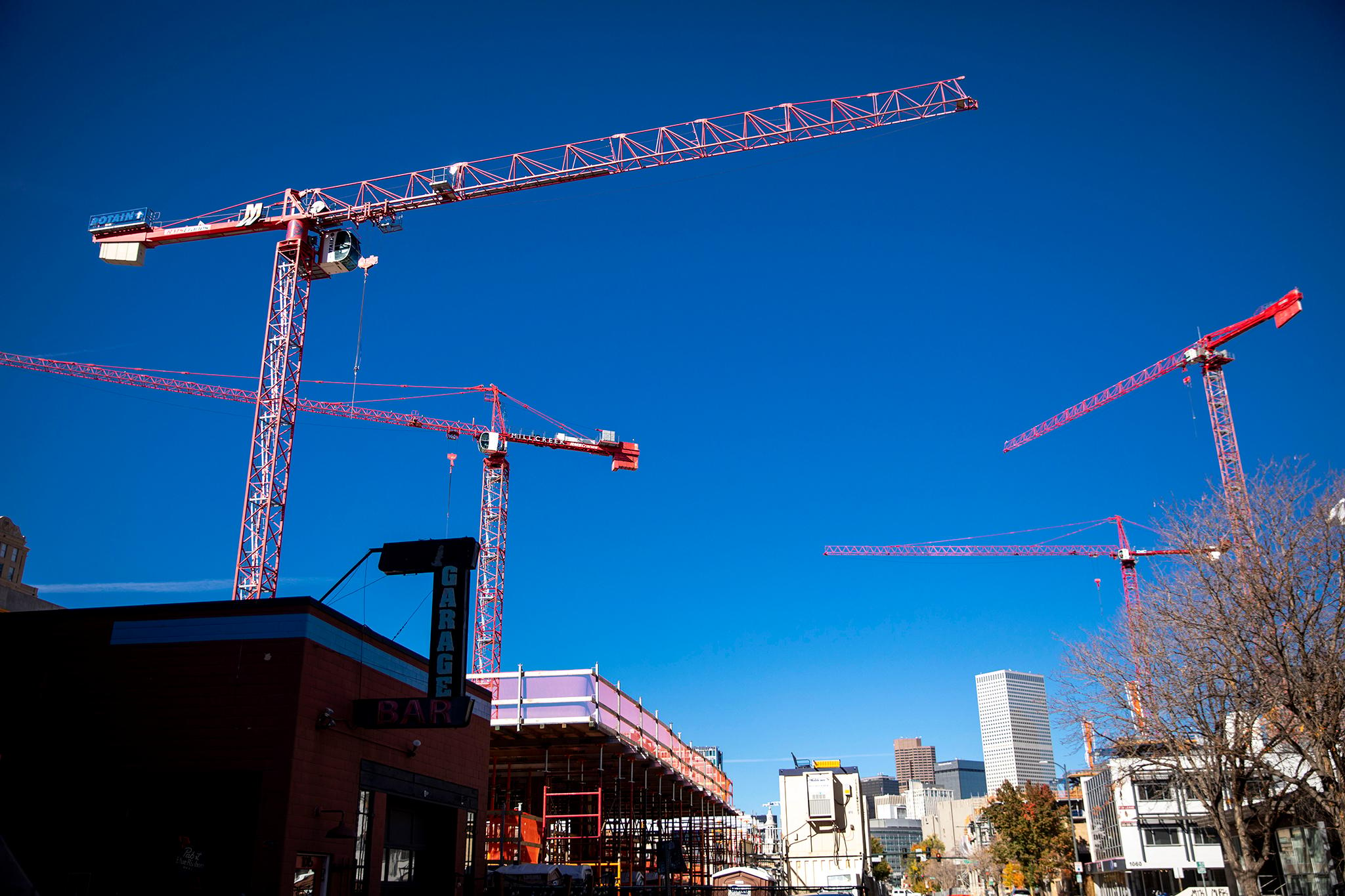Denver is lagging behind on adding affordable housing units and falling short on housing inspections, according to a new report released Thursday by the Denver Auditor's Office.
"If affordable housing is a priority in the city, leaders need to show a matching responsibility to effective use of resources, accountability to housing goals, and commitment to helping those in Denver who need it most," auditor Tim O'Brien said in a statement Thursday.
A housing unit is defined as "affordable" when a family is paying no more than 30% of its income on housing costs. According to the report, the average monthly rent in Denver was $2,105, or 30% for someone making $84,000, a salary more than double Denver's minimum wage.
The audit inspected 21 affordable properties and found issues at 14 of them, even though recent inspection paperwork showed no problems.
"Issues included human or pet waste, broken windows, and evidence of pest infestations," O'Brien wrote.
Denver Department of Housing Stability (HOST) spokesperson Sabrina Allie said that the city has already begun to implement changes suggested by the audit, but that some of the other suggestions go against federal standards.
A program aimed at growing affordable housing stock has been renting some units at market rate and developing too few units.
The city works with the Denver Housing Authority (DHA) on a program called DHA Delivers for Denver Program (D3), a bond-funded program aimed at speeding up affordable housing development.
According to the audit, that program developed 32 fewer units than required for very low-income families and 301 fewer units than required for moderate-income families. Another 203 units were rented at costs cheaper than the average city rent, but still at a level considered market-rates. That means they have the potential to become increasingly unaffordable over time.
"While about half of these are rented at rates for people in the target income, the lower-than-average prices are not guaranteed if market conditions change -- resulting in potential rent increases and loss of affordability," O'Brien wrote. "The other half of these units already exceed the rents allowed by the agreement."
The report also found that Council districts 1, 3, 8 and 9 got more housing investments than allowed, and that the program was counting units funded through other city sources potentially "inflating" housing development figures.
Other concerns involve wage violations; the report found that the city is not adequately making sure that contractors are following wage laws. Wage theft is a common issue in construction, and after the city beefed up worker protections, the Auditor's Office recovered a record $2 million for workers this year.
The report also found 'inadequate' inspections of affordable housing.
Audit staff conducted unannounced inspections of a random sampling of DHS-funded affordable housing projects. They found unlocked doors, missing door handles, water damage, trash, broken windows, potential pest infestations and fire code violations, exposed wires, broken elevators and large cracks to brick and foundations.
The report warned that the city could lose affordable housing stock because of poor conditions.
"The city's approach to health and safety in affordable housing buildings is not good enough," O'Brien said. "People living in some of these properties are forming unions because they don't feel their voices are being heard. That is more than enough evidence that the city needs to take this more seriously."
Residents of a number of buildings have formed unions in recent years. In one case, a group of tenants are attempting to bring a class action lawsuit against a private management company for poor building conditions.
The city agreed with most of the recommendations from the Auditor's Office.
These suggestions included better monitoring compliance with the D3 program and with inspections, conducting a staffing analysis, improving the way the city verifies income for units and working with Denver Labor to prevent wage theft.
HOST disagreed with two recommendations around improving how the city conducts inspections of properties. According to a response letter from HOST, the department "conducts inspections annually, effectively, and consistently," and that shortening the timeline for notice of inspections would go against HUD policies.
Editor's note: This article was updated with comment from HOST.











